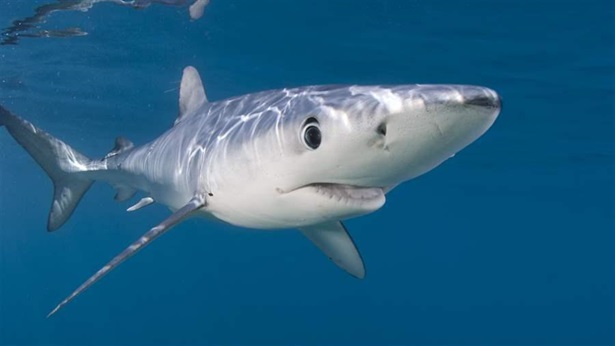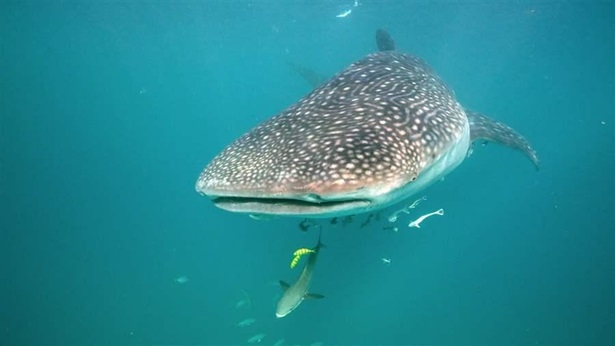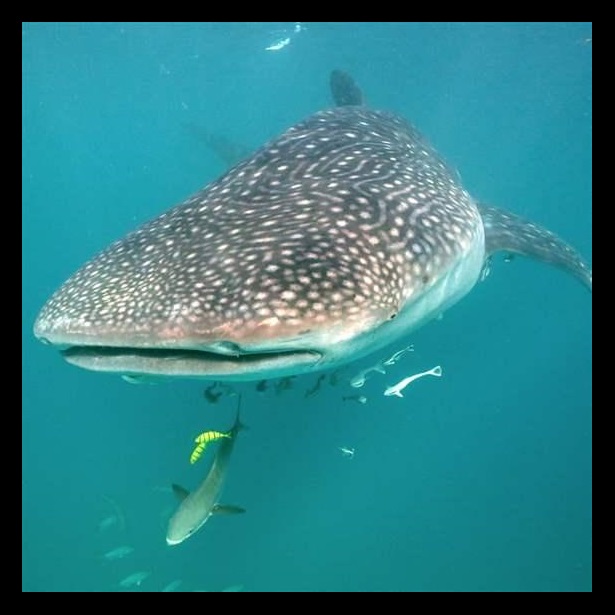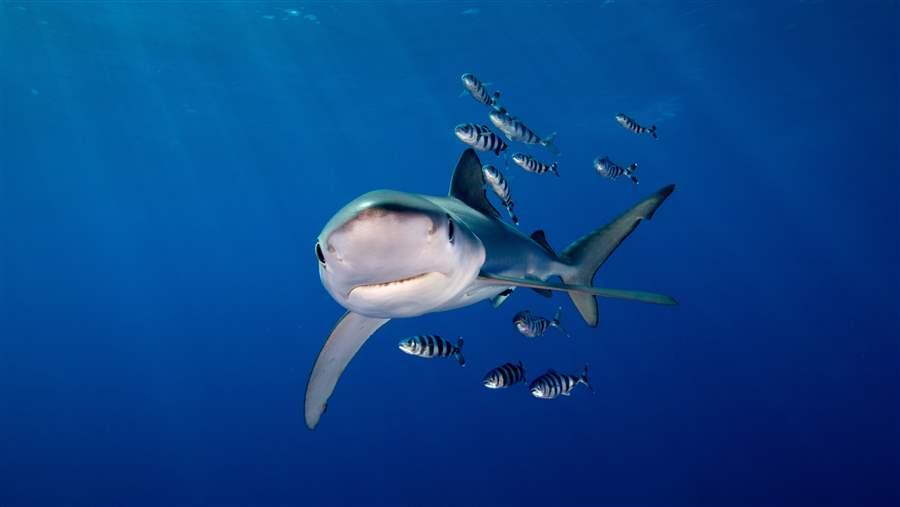Pew Applauds Agreement to Protect Migratory Sharks
U.N. treaty meeting in Manila identifies 6 shark species as global priority
MANILA, Philippines—The Pew Charitable Trusts today praised the 124 governments of the U.N. Convention on the Conservation of Migratory Species of Wild Animals (CMS) for taking action toward protecting six shark species. The decision came at the end of the weeklong 12th Conference of the Parties (CoP12) in Manila.
The governments of Honduras, Israel, Mauritania, Monaco, the Philippines, Samoa, Senegal, Sri Lanka, and Togo proposed six species—whale sharks, angel sharks, white-spotted wedgefish, common guitarfish, dusky sharks, and blue sharks – for protection through addition to the CMS lists, known as appendices. Appendix I prohibits the catch of any of these endangered species from any place they migrate, and Appendix II identifies the shark species most in need of conservation action, encouraging cooperation to properly manage and protect the species throughout their migratory range.
Today’s actions placed whale sharks, angel sharks, and common guitarfish in the Mediterranean on Appendix I and dusky, angel and blue sharks, white-spotted wedgefish, and common guitarfish globally on Appendix II.
KerriLynn Miller, a conservation expert on Pew’s shark conservation project, issued the following statement:
“The momentum for protecting sharks continues to build, thanks to the significant step CMS members have taken toward better management of six at-risk shark species.
“These species, like many others, are migratory, even those that spend part of their lives in protected waters, leaving them vulnerable to various types of fishing gear. In some regions, the newly protected shark species have experienced population declines of 50 percent or more. The commitment that CMS parties will work together to offer these sharks the help they need to recover is critical to their depleted populations, and is important for making the entire ocean safer for the species that migrate.
“The CMS Appendix II listings allow for the sustainable fishing of sharks, but if management measures are not effectively implemented, species listed in Appendix II could qualify for the stricter protections of Appendix I. To ensure that these Appendix II listings have the needed impact, governments must follow through on their commitments to cooperate by developing stronger domestic shark protections, while considering international management through regional fisheries bodies and the Convention on International Trade in Endangered Species of Wild Fauna and Flora.
“As for the species that were protected today, the CMS parties have shown that proper management for imperiled sharks and rays continues to be a global priority. We applaud governments for offering the highest level of protection for the whale and angel sharks and the common guitarfish in the Mediterranean, where urgent action is needed, and are encouraged to see additional species—blue and dusky sharks, white-spotted wedgefish, and common guitarfish globally—afforded an opportunity to recover before their populations require full protection. This is an important step toward safeguarding shark populations for generations to come.”
###
More information on Pew’s global shark conservation campaign is available at http://www.pewsharks.org.
The Pew Charitable Trusts is driven by the power of knowledge to solve today’s most challenging problems. Learn more at www.pewtrusts.org.


America’s Overdose Crisis
Sign up for our five-email course explaining the overdose crisis in America, the state of treatment access, and ways to improve care
Sign up

6 Migratory Sharks Are up for Protections at CMS CoP12
Protections for 6 shark species to be considered













